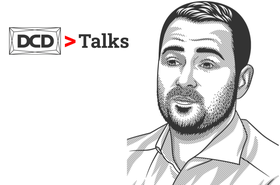From large-scale projects to those in remote locations, challenges can soon arise when it comes to accommodating the workforce.
“Deploying large groups of guys into a project is always difficult, even in the UK,” said Paul Glover, managing director at Working Away From Home (WAFH).
This becomes more difficult when different workers have different requirements. Some might have families they want to bring with them on a long-term project and will need to be near schools. Younger members of the workforce might prefer to be closer to the city center – in other words, a logistical nightmare waiting to happen.
“That's where we come in,” said Glover. “We source or manage the properties. We travel to the locations, so we understand the local environments. Every person has a different requirement in terms of where they want to live, so we help with the logistics behind it.”
And because the company has its foundation in property development, it has its finger on the pulse of local happenings, thanks to a pre-existing network of key property players. This is particularly useful when it comes to securing otherwise scarce accommodation.
“Different locations have different challenges. So, for example, we know there are key hotspots in Frankfurt around Copenhagen at the moment, which means there can be a shortage of accommodation. So we can act quickly, using our partnerships to secure properties.”
But, as problematic as a popular location can be, deploying a workforce into the middle of nowhere is no easy feat either.
“When you turn up to a very remote location, you’re like: ‘Wow, we’ve got thousands of guys coming onto this project. How are we going to source properties for all these people?’ So we'll spend time there and network with a lot of the local property people, property investors, letting agents, and so on, to help develop a solution.”
Glover also pointed out that when deploying large teams of people to remote locations, what often isn’t considered is the effect this could have on local environments, if not handled in the right way.
“It's not often given a lot of focus. But we may have 1,000, 2,000, 3,000 people descending upon one location, staying in that location, so it’s going to have an impact.”
To help mitigate that impact, Glover highlighted the importance of educating the workforce on any local ‘environmental etiquette’ they should be aware of, in terms of things like water use, heat, and recycling.
“Recycling is a big one, it’s often law in local communities. There'll be a certain way that you need to recycle, you'll have to use certain rubbish bags and different colors, etc., so just really trying to reinforce that sort of thing to the client.”
WAFH has also done its bit for sustainability with the reuse and regeneration of otherwise disused buildings. From old schools being turned into apartments, to a medical unit repurposed into a larger property to maximize capacity, WAFH’s contacts aren’t only good for its clients, they’re good for the environment as well.
To learn more about how serviced accommodation could benefit your business you can watch the full DCD>Talk here.

